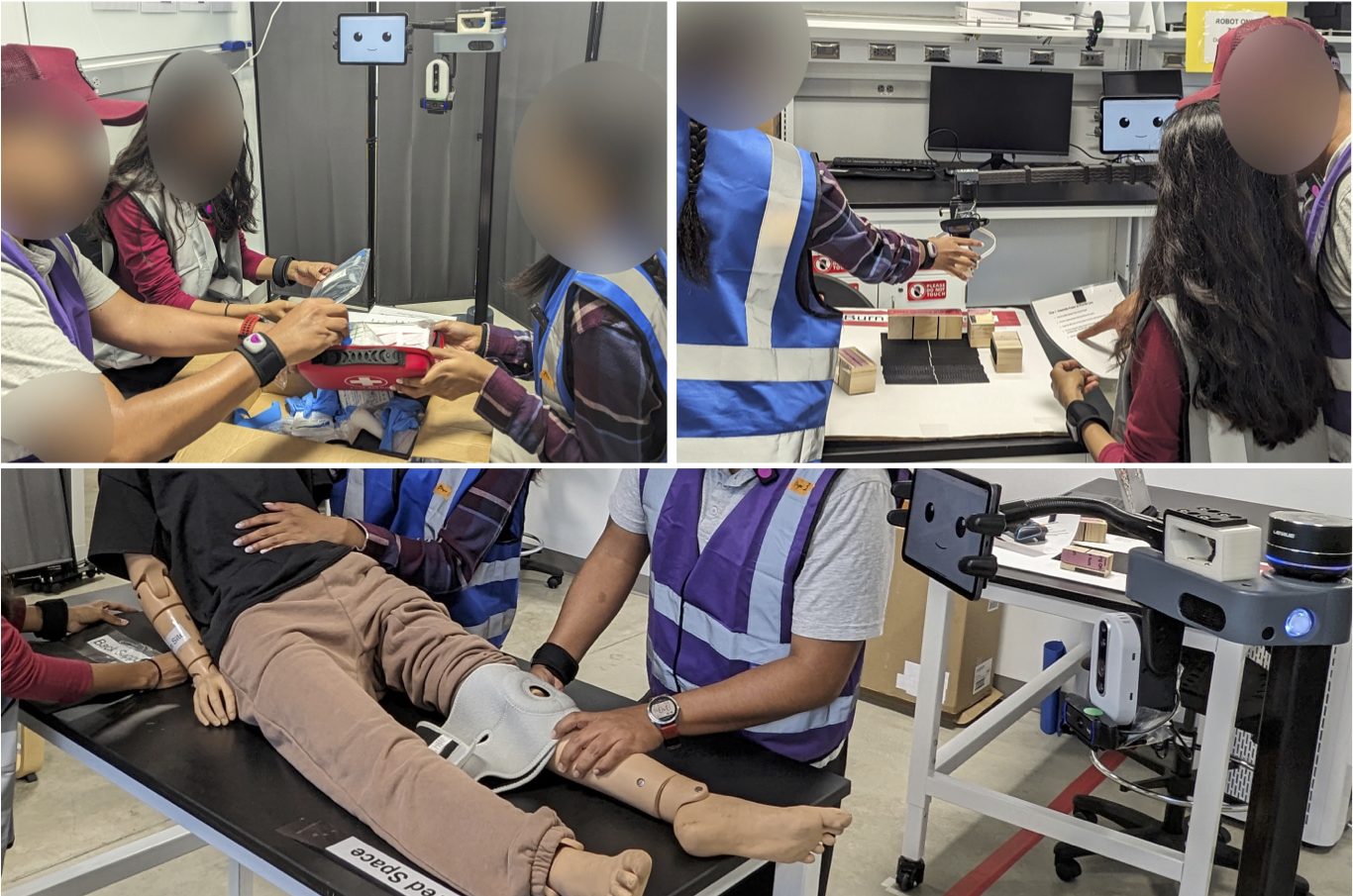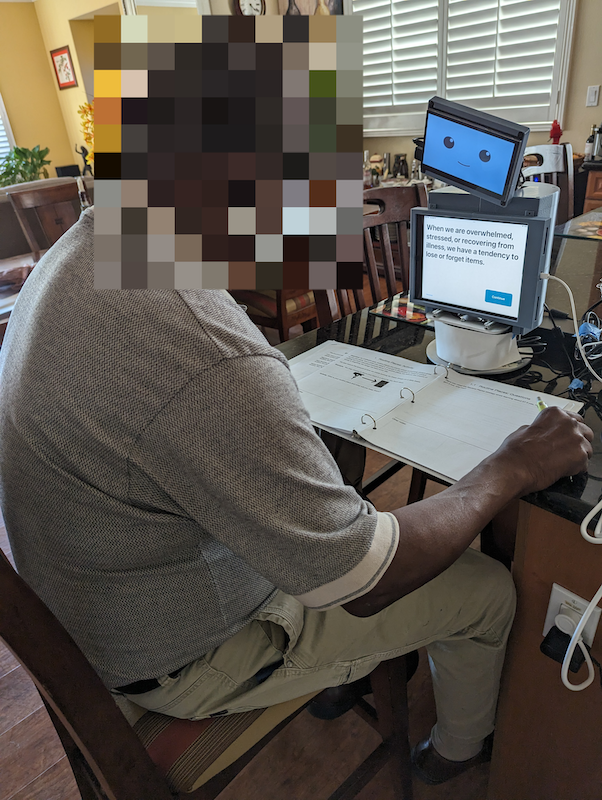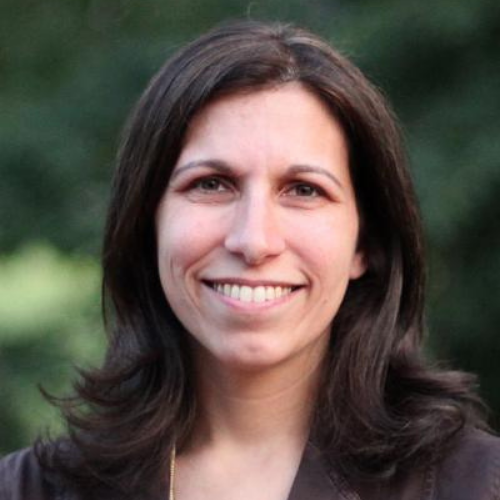UC San Diego Roboticists Showcase Excellence at Human-Robot Interaction 2024 Conference
University of California, San Diego robotics research– from supporting patient home care and stroke rehabilitation to facilitating mission critical teamwork among first responders– was on display during the ACM/IEEE International Conference on Human-Robot Interaction (HRI).
Researchers from UC San Diego’s Healthcare Robotics Lab are at the epicenter of human robot interaction and its applications in the medical field. Led by the lab’s director Laurel Riek, a professor in the Department of Computer Science and Engineering in the Jacobs School of Engineering with a joint appointment in the Department of Emergency Medicine, the group’s groundbreaking research shined at the 19th Annual HRI conference held in Boulder, Colorado.
An impressive nine papers from the Healthcare Robotics Lab were presented at the conference, covering the technologies, clinical practicalities, and ethical considerations of implementing robotic systems into complex, socio-technical medical settings.
Riek, who has worked at the intersection of Artificial Intelligence and Robotics for decades, spoke at four HRI conference workshops and was keynote speaker for three of them: Scarecrows in Oz: Large Language Models in HRI; Disability Ethics, Accessibility, & Assistive Applications in HRI; and HRI for Aging in Place.
UC San Diego papers at Human-Robot Interaction
“CARMEN: A Cognitively Assistive Robot for Personalized Neurorehabilitation at Home” Bouzida, A., Kubota, A., Cruz-Sandoval, D., Twamley, E., and Riek, L.D. (nominated for best paper)
For individuals living with dementia or mild cognitive impairment, simple day-to-day tasks– such as those related to memory, attention, organization, problem-solving and planning– can be daunting. The UC San DIego team built CARMEN, or Cognitively Assistive Robot for Motivation and Neurorehabilitation, to one day improve access to care and increase patient independence with the help of custom AI algorithms.


One of CARMEN’s distinguishing features is its flexibility, rapidly integrating stakeholder input to align with clinical practice.
This work was led by CSE PhD student Anya Bouzida, alumna Alyssa Kubota (PhD ’23), and postdoc Dago Cruz-Sandoval, in collaboration with Elizabeth Twamley in the UC San Diego Department of Psychiatry.
Riek was senior author for eight additional papers presented at the 2024 HRI conference.
Work led by alumnus Benjamin Bestmann (BS ’23) presented GARRY, a neurorehabilitation robot that could impact the lives of 12.2 million new stroke patients each year. CSE PhD student Pratysha Ghosh led research on how telemedical robots could be used to support people experiencing Long Covid.

PhD students Rabeya Jamshad and Sachiko Matsumoto, master’s student Arthi Haripriyan, and postdoc Preeti Ramaraj led work on building robots that integrate into action teams, such as first responders and emergency medical personnel. Finally, PhD students Sandhya Jayaraman and Pratyusha Ghosh led research exploring the privacy and ethical concerns of deploying robots in healthcare, which can have global implications.
- Bestmann, B., Chow, A., Kubota, A., and Riek, L.D. (2024). “GARRY: The Gait Rehabilitation Robotic System.”
- Ghosh, P., Haripriyan, A., Chow, A., Redfield, S., and Riek, L.D. (2024). “Envisioning Mobile Telemanipulator Robots for Long Covid.”
- Matsumoto, S. and Riek, L.D. “Telepresence Robots for Dynamic, Safety-Critical Environments“.
- Jamshad, R., Haripriyan, A., Sonti, A., Simkins, S., and Riek, L.D. (2024). “Human-Robot Action Teams: How Robots Can Be Proactive Teammates.”
- Ramaraj, P., Hairpriyan, A., Jamshad, R., and Riek, L.D. (2024). “Analysis of Social Signals in Human-Robot Action Teams.”
- Jayaraman, S., Philips, E., Church, D., and Riek, L.D. (2024). “Social Robots in Healthcare: Characterizing Privacy Considerations.”
- Ghosh, P., Leido, B., and Riek, L.D. (2024). “The Problem of Ableist Paternalism in Assistive Robotics.”
- Jayaraman, S., Cruz-Sandoval, D., Kubota, A., and Riek, L.D. (2024). “What a professional care provider wants, what a disabled person needs: Exploring stakeholder design tensions in assistive robotics.”
Other UC San Diego faculty with papers at HRI 2024 include Amy Eguchi, School of Education, Hortense Gerardo, the Jacobs School of Engineering, and Robert Twomey, Clarke Imagination Center.
- Eguchi, A., Gerardo, H., Twomey, R. (2024). “Beyond the Black Box: Human Robot Interaction through Human Robot Performances.”
CSE robotics alumni had a strong presence as well, including a second best paper nomination for a paper by Angelique Taylor (PhD ’21), an assistant professor at Cornell University, and postdoctoral alumna Hee Rin Lee, now an assistant professor at Michigan State University.
- Taylor, A., Tanjim, T., Cao, H., Lee, H.R. (2024). “Towards Collaborative Crash Cart Robots that Support Clinical Teamwork.” (nominated for best paper)
CSE alumnus Tariq Iqbal (PhD ’17), currently an assistant professor at the University of Virginia, also had a paper accepted.
- Yasar, M., Islam, M., Iqbal, T. (2024). “PoseTron: Enabling Close-Proximity Human-Robot Collaboration Through Multi-human Motion Prediction.”

